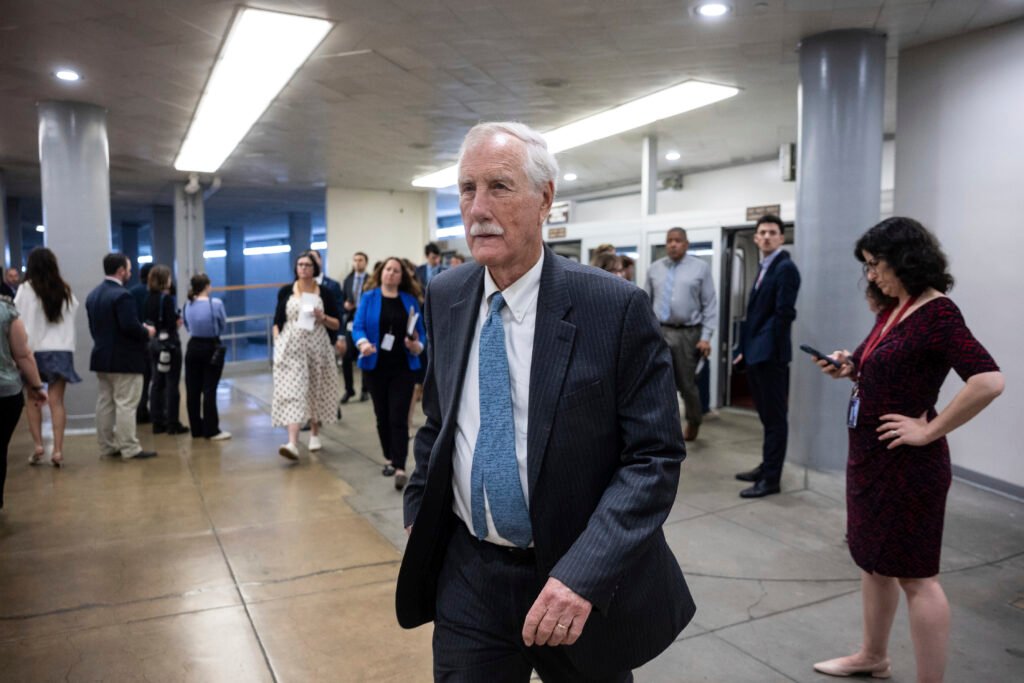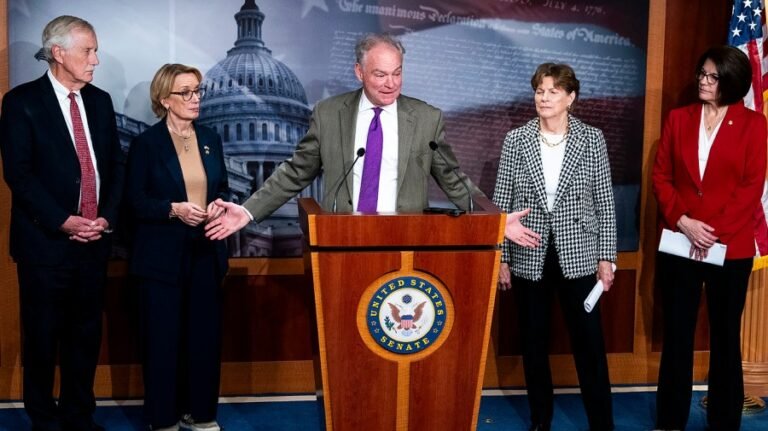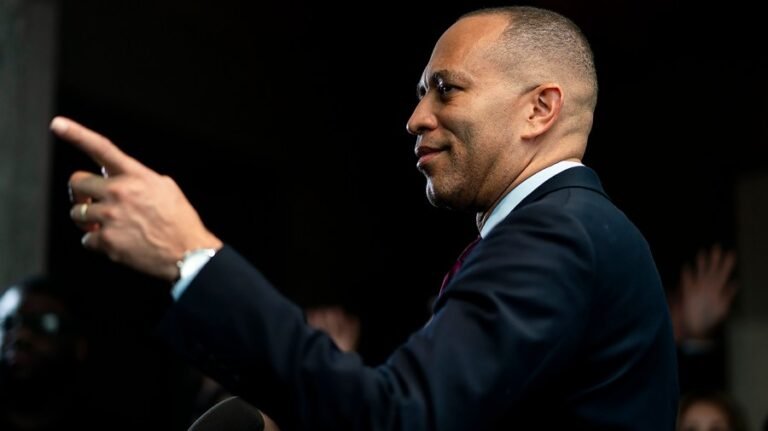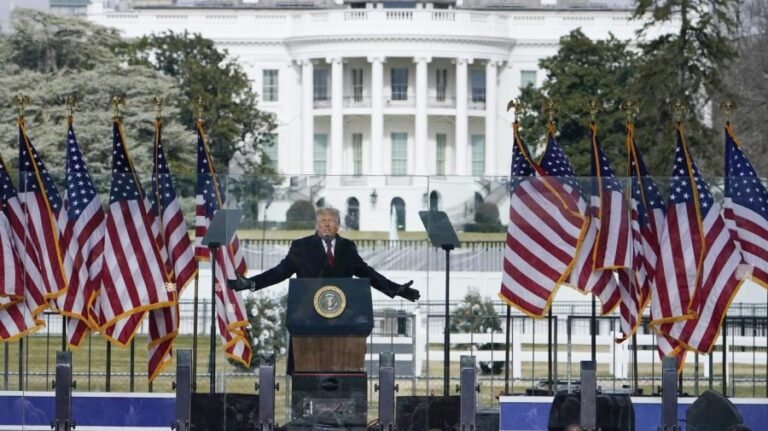
Eight members of the Senate Democratic Caucus broke ranks Sunday and voted to advance a deal to reopen the federal government.
That’s fewer than the 10 Democrats who broke ranks in March to advance a previous GOP-led stopgap funding bill — a move that sparked a huge backlash against Minority Leader Chuck Schumer.
There are few obvious threads connecting the group who broke the partisan impasse this time. Some of them helped broker the agreement with Republicans over the opposition of Schumer and most other Democrats, who wanted a guaranteed extension for expiring federal health insurance subsidies.
Most, but not all, previously held state-level office — including four former governors. Most, but not all, come from presidential swing states. Two have announced they are retiring from the Senate after their current terms end, and two are senior members of the Senate Appropriations Committee.
The vote remains open Sunday night as Senate leaders await the arrival of all 100 senators, but these eight members have already cast their votes, with most issuing statements explaining why:
Sen. Catherine Cortez Masto of Nevada
Cortez Masto has voted 15 times to end the federal government shutdown, even before Democrats had extracted the promise of a vote on the health care tax credits. She repeatedly stated she did not want to inflict sweeping pain on some Americans in order to extract a solution to “the impending health care crisis” of expiring tax credits.
She described “lines like I haven’t seen since the pandemic” for food banks in Nevada to reporters during the vote Sunday night and said that that opening the government “was key to stopping that pain.”
Sen. Dick Durbin of Illinois
Durbin is the Democratic whip and the only member of party leadership who voted with Republicans to advance the deal to end the shutdown. His likely successor as whip, Sen. Brian Schatz (D-Hawaii), voted against advancing the deal after sticking with Schumer and Durbin in March.
“This bill is not perfect, but it takes important steps to reduce their shutdown’s hurt,” Durbin said in a statement. “Now that Democrats secured these wins, it’s time for Leader Thune to keep his promise to schedule a vote on the ACA tax credits in December.” He is retiring next year after three decades in office.
Sen. John Fetterman of Pennsylvania
Fetterman is the only Democrat who has voted each and every time to end the shutdown. He’s knocked his party for sparking the shutdown and blamed them for government workers missing paychecks and low income families losing federal food aid.
Sen. Maggie Hassan of New Hampshire
Hassan, who was one of the Democrats who negotiated the vote on the Affordable Care Act tax credits deal. A former New Hampshire governor, she is up for reelection in 2028.
“I’ve heard from Granite Staters who can’t afford a doubling of their health insurance costs. I’ve also heard from families about the deep pain that the government shutdown has caused,” Hassan told reporters Sunday, highlighting the dueling pressures Democrats were under to cut a deal.
Sen. Tim Kaine of Virginia
Kaine represents about 150,000 federal workers affected by the shutdown and backed the deal that includes a key provision for his state: reinstatement of federal workers impacted by mass “reduction in force” firings during the shutdown.
“This legislation will protect federal workers from baseless firings, reinstate those who have been wrongfully terminated during the shutdown, and ensure federal workers receive back pay,” he said in a statement. Kaine admitted Sunday night that he was a latecomer to the group, saying, “I joined it 48 hours ago, not for lack of interest.”
Sen. Angus King of Maine
King, an independent who caucuses with Democrats, was a key negotiator on the deal struck to guarantee a vote on Affordable Care Act tax credits once the government is open. He hosted multiple meetings in his Capitol hideaway in recent weeks as the compromise came together.
A former governor of Maine, King pointed to the pain the shutdown is causing with federal aid programs halted. “We are closer to the possibility of work on the ACA tax credits for the people of this country than we were yesterday, than we were a week ago, two weeks ago, or a month ago,” he said Sunday.
Sen. Jacky Rosen of Nevada
Rosen joined her fellow Nevadan Cortez Masto to vote to advance the deal, representing a state where 95,000 Nevadans utilize the ACA tax credits. Like King, she was just reelected in 2024.
“Trump and his Republican cronies on Capitol Hill do not give a damn about hurting working people, and their conduct over the last month has been nothing short of appalling, Rosen said in a statement. She called the ACA tax credit vote “the concession we’ve been able to extract.”
Sen. Jeanne Shaheen of New Hampshire
Shaheen was an original sponsor of the legislation that created the enhanced Obamacare tax credits that have been central to the shutdown dispute and played a key role in negotiating the vote to extend them. Like Durbin, she is retiring from the Senate next year and has spent much of her Senate career on the Appropriations Committee. She was also part of shaping the new stopgap spending bill that, in tandem with the ACA vote promise, could open the government.
“This was the only deal on the table. It was our best chance to reopen the government and immediately begin negotiations to extend the ACA tax credits,” Shaheen said Sunday night.


